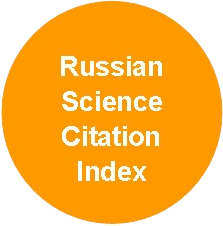The Use of Modified Scots Pine Bark as Filling Material of Heat and Sound Insulation
DOI:
https://doi.org/10.17238/issn0536-1036.2019.2.111Keywords:
bark and wood waste disposal, mechanical activation, modification of plant raw materials, fine-dispersed basalt, heat conductivity, heat capacity, airborne sound insolation indexAbstract
The purpose of this work is studying the thermophysical and acoustic properties of modified Scots pine bark (Pinus sylvestris L.) for the use as heat and sound insulation filling material. Bark modification was carried out by mechanical activation of plant material with the use of a planetary ball mill, then drying of the plant material and its treatment with water suspension containing fine-dispersed basalt particles of 150 nm average size. Samples were homo-genized and dried again. It has been found that the bark fraction of 0.5–1 mm is optimal as filling insulation. Treatment with basalt suspension of such bark makes it possible to obtain material with the following characteristics: bulk density ρbulk = 313 kg/m3; coefficient of heat conductivity λ = 0.0651 W/(m·K); airborne sound insulation index Rw = 28.5 dB. The values of these parameters are comparable with the similar characteristics of the widely used insulation materials. In addition, it was determined that significant increase of the specific surface area of the material occurs during bark modification at the same time the volume of open pore space is reducing by 15.5 %. Thus, the modified pine bark can be recommended for the use as filling insulation in non-residential industrial and agricultural premises.
Funding: The studies were carried out with the financial support of the RFBR grant no. 18-43-292002.
For citation: Danilov V.E., Ayzenshtadt A.M. The Use of Modified Scots Pine Bark as Fil-ling Material of Heat and Sound Insulation. Lesnoy Zhurnal [Forestry Journal], 2019, no. 2, pp. 111–118. DOI: 10.17238/issn0536-1036.2019.2.111
Downloads
References
Гаврилов Т.А., Колесников Г.Н. Анализ направлений переработки отходов окорки // Актуальные направления научных исследований XXI века: теория и практика. 2015. Т. 3, № 9-2(20-2). С. 115–118. DOI: 10.12737/16445
Данилов В.Е., Айзенштадт А.М., Махова Т.А. Конструкционная теплоизоляция на основе отходов деревообрабатывающей и горной промышленности // Промышленное и гражданское строительство. 2017. № 1. С. 97–100.
Девятловская А.Н., Журавлѐва Л.Н., Девятловский Н.В. Утилизация древесной коры деревоперерабатывающих предприятий // Актуальные проблемы лесного комплекса. 2010. № 27. С. 51–54.
Кузнецов Б.Н., Чесноков Н.В., Иванов И.П., Веприкова Е.В., Иванченко Н.М. Методы получения пористых материалов из лигнина и древесной коры (обзор) // Журн. Сиб. федер. ун-та. Химия. 2015. Т. 2, № 8. С. 232–255. DOI: 10.17516/1998-2836-2015-8-2-232-255
Лесной кодекс Российской Федерации: федер. закон от 04.12.2006 № 200-ФЗ (ред. от 01.07.2017). Доступ из справ.-правовой системы «Косультант Плюс».
Мелехов В.И., Тюрикова Т.В., Пономарева Н.Г. Энергетический потенциал древесной коры в программе ресурсосбережения // Актуальные направления научных исследований XXI века: теория и практика. 2015. Т. 3, № 9-3(20-3). С. 106–110. DOI: 10.12737/16877
Мюллер О.Д., Мелехов В.И., Пономарева Н.Г., Тюрикова Т.В., Хрусталева М.О. Математическая модель процесса прессования термомодифицированной древесной коры в пресс-грануляторах барабанного типа // Лесн. журн. 2017. № 2. С. 130–148. (Изв. высш. учеб. заведений). DOI: 10.17238/issn0536-1036.2017.2.130
Патякин В.И., Костин И.В., Ильюшенко Д.А. Некоторые проблемы использования древесной коры в промышленности // Системы. Методы. Технологии. 2011. № (4)12. С. 121–124.
Петухов Р.А. Инвестиционный потенциал лесного комплекса Республики Карелия // Образование и наука в современных условиях. 2015. № 3. С. 314–315.
Судакова И.Г., Иванченко Н.М., Кузнецов Б.Н. Получение древесных топливных брикетов с использованием связующих из суберина березовой коры // Химия растительного сырья. 2008. № 2. С. 31–34.
Яковлева К.А. Использование лесных ресурсов в приграничных регионах: анализ социально-экономической эффективности // Вестн. Забайк. гос. ун-та. 2015. № 6(121). С. 156–165.
Danilov V.E., Ayzenshtadt A.M., Makhova T.A., Frolova M.A. Determination of Size Properties of the Organomineral Insulation Nanofiller Based on the Wood Matrix // IOP Conference Series: Materials Science and Engineering. 2017. Vol. 177, 012063. 5 p. DOI: 10.1088/1757-899X/177/1/012063
Kain G., Charwat-Pessler J., Barbu M.-C., Plank B., Richter K., Petutschnigg A. Analyzing Wood Bark Insulation Board Structure Using X-ray Computed Tomography and Modeling Its Thermal Conductivity by Means of Finite Difference Method // Journal of Composite Materials. 2016. Vol. 50, iss. 6. Pp. 795–806. DOI: 10.1177/0021998315581511
Kain G., Güttler V., Barbu M.-C., Petutschnigg A., Richter K., Tondi G. Density Related Properties of Bark Insulation Boards Bonded with Tannin Hexamine Resin // European Journal of Wood and Wood Products. 2014. Vol. 72, iss. 4. Pp. 417–424. DOI: 10.1007/s00107-014-0798-4
Kain G., Güttler V., Lienbacher B., Barbu M.-C., Petutschnigg A., Richter K., Tondi G. Effects of Different Flavonoid Extracts in Optimizing Tannin-Glued Bark Insulation Boards // Wood and Fiber Science. 2015. Vol. 47, no. 3. Pp. 258–269.
Pásztory Z., Mohácsiné I.R., Gorbacheva G.А., Börcsök Z. The Utilization of Tree Bark // BioResources. 2016. Vol. 11, iss. 3. Pp. 7859–7888.







